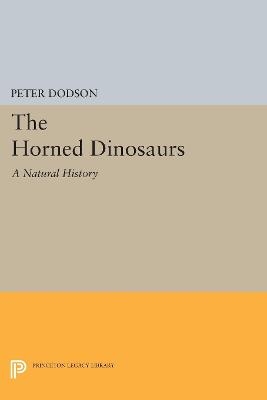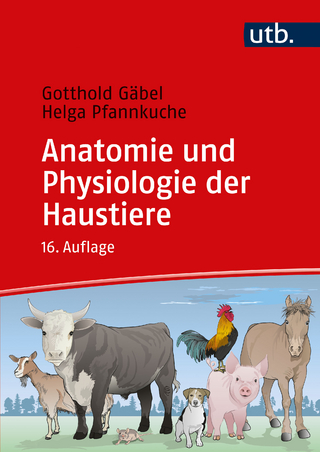
The Horned Dinosaurs
A Natural History
Seiten
1998
Princeton University Press (Verlag)
978-0-691-05900-6 (ISBN)
Princeton University Press (Verlag)
978-0-691-05900-6 (ISBN)
- Titel ist leider vergriffen;
keine Neuauflage - Artikel merken
From the Red Deer River in Alberta to the Gobi Desert, the author pieces together fossil evidence to describe the horned dinosaurs (ceratopsia) - their anatomy, biology and geography - and to evoke the human element of their discovery and interpretation.
The horned dinosaurs, a group of rhinoceros-like creatures that lived 100 to 65 million years ago, included one of the greatest and most popular dinosaurs studied today: Triceratops. Noted for his flamboyant appearance--marked by a striking array of horns over the nose and eyes, a long bony frill at the back of the head, and an assortment of lumps and bumps for attracting females--this herbivore displayed remarkable strength in its ability to fight off Tyrannosaurus rex. It was also among the last dinosaurs to walk the earth. In telling us about Triceratops and its relatives, the Ceratopsia, Peter Dodson here re-creates the sense of adventure enjoyed by so many scientists who have studied them since their discovery in the mid-nineteenth century. From the badlands of the Red Deer River in Alberta to the Gobi Desert, Dodson pieces together fossil evidence to describe the ceratopsians themselves--their anatomy, biology, and geography--and he evokes the human dimension of their discovery and interpretation. An authoritative survey filled with many original illustrations, this book is the first comprehensive presentation of horned dinosaurs for the general reader.
Dodson explains first the fascinating ways in which the ceratopsians dealt with their dangerous environment. There follows a lesson on ceratopsian bone structure, which enables the reader quickly to grasp the questions that still puzzle scientists, concerning features such as posture, gait, footprints, and diet. Dodson evenhandedly discusses controversies that continue, for example, over sexual dimorphism and the causes of the dinosaurs' disappearance. Throughout his narrative, we are reminded that dinosaur study is a human enterprise. We meet the scientists who charmed New York high society into financing expeditions to Mongolia, home of Triceratops' predecessors, as well as those who used their poker winnings to sustain paleontology expeditions. Rich in fossil lore and in tales of adventure, the world of the Ceratopsia is presented here for specialists and general readers alike.
The horned dinosaurs, a group of rhinoceros-like creatures that lived 100 to 65 million years ago, included one of the greatest and most popular dinosaurs studied today: Triceratops. Noted for his flamboyant appearance--marked by a striking array of horns over the nose and eyes, a long bony frill at the back of the head, and an assortment of lumps and bumps for attracting females--this herbivore displayed remarkable strength in its ability to fight off Tyrannosaurus rex. It was also among the last dinosaurs to walk the earth. In telling us about Triceratops and its relatives, the Ceratopsia, Peter Dodson here re-creates the sense of adventure enjoyed by so many scientists who have studied them since their discovery in the mid-nineteenth century. From the badlands of the Red Deer River in Alberta to the Gobi Desert, Dodson pieces together fossil evidence to describe the ceratopsians themselves--their anatomy, biology, and geography--and he evokes the human dimension of their discovery and interpretation. An authoritative survey filled with many original illustrations, this book is the first comprehensive presentation of horned dinosaurs for the general reader.
Dodson explains first the fascinating ways in which the ceratopsians dealt with their dangerous environment. There follows a lesson on ceratopsian bone structure, which enables the reader quickly to grasp the questions that still puzzle scientists, concerning features such as posture, gait, footprints, and diet. Dodson evenhandedly discusses controversies that continue, for example, over sexual dimorphism and the causes of the dinosaurs' disappearance. Throughout his narrative, we are reminded that dinosaur study is a human enterprise. We meet the scientists who charmed New York high society into financing expeditions to Mongolia, home of Triceratops' predecessors, as well as those who used their poker winnings to sustain paleontology expeditions. Rich in fossil lore and in tales of adventure, the world of the Ceratopsia is presented here for specialists and general readers alike.
List of Figures ix Preface xiii CHAPTER ONE With Horns on Their Faces 3 CHAPTER TWO Skin and Bones: The Anatomy of a Homed Dinosaur 29 CHAPTER THREE Three-Homed Face 56 CHAPTER FOUR Five-Horned Face and Friends 89 CHAPTER FIVE A Big One on the Nose: The Short-Frilled Homed Dinosaurs 123 CHAPTER SIX Newer Developments and Modem Studies 170 CHAPTER SEVEN No Horns and No Frills: Small Beginnings 200 CHAPTER EIGHT Sisters, Cousins, and Aunts: Deciphering the Family Tree 244 CHAPTER NINE The Life and Death of Homed Dinosaurs 260 Notes 283 Literature Cited 311 Index 325
| Erscheint lt. Verlag | 19.4.1998 |
|---|---|
| Reihe/Serie | Princeton Legacy Library |
| Zusatzinfo | 4 Maps |
| Verlagsort | New Jersey |
| Sprache | englisch |
| Maße | 152 x 229 mm |
| Gewicht | 539 g |
| Themenwelt | Naturwissenschaften ► Biologie ► Zoologie |
| Naturwissenschaften ► Geowissenschaften ► Mineralogie / Paläontologie | |
| ISBN-10 | 0-691-05900-4 / 0691059004 |
| ISBN-13 | 978-0-691-05900-6 / 9780691059006 |
| Zustand | Neuware |
| Informationen gemäß Produktsicherheitsverordnung (GPSR) | |
| Haben Sie eine Frage zum Produkt? |
Mehr entdecken
aus dem Bereich
aus dem Bereich


